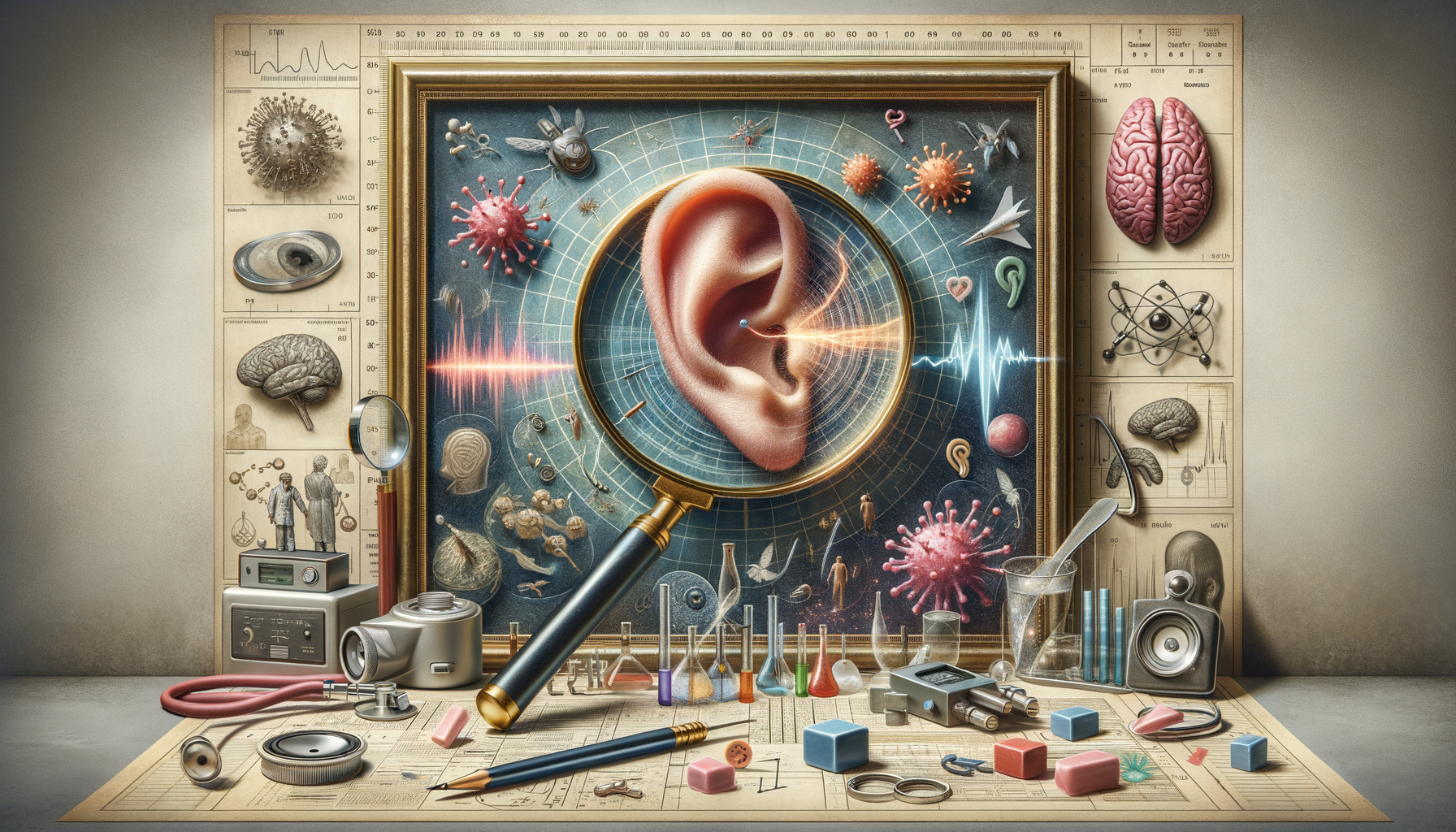Understanding Tinnitus: A Closer Look
Tinnitus is a condition characterized by the perception of sound when no external noise is present. This sound can vary, often described as ringing, buzzing, hissing, or whistling. While it can be a temporary experience, for some, it becomes a chronic issue that significantly impacts quality of life. Understanding tinnitus begins with recognizing its prevalence; it affects millions worldwide, with varying degrees of severity. The condition is not a disease itself but a symptom of underlying issues, which can range from ear infections and age-related hearing loss to exposure to loud noises and even stress.
The challenge with tinnitus is its subjective nature—what one person hears can be entirely different from another’s experience. This subjectivity makes diagnosis and treatment complex. However, advancements in audiology and neurology have shed light on potential mechanisms behind tinnitus, suggesting that it may involve changes in brain activity or auditory pathways. Recognizing these complexities is crucial in developing effective management strategies.
Identifying Causes and Triggers
Pinpointing the exact cause of tinnitus can be elusive, as it often results from a combination of factors. Common causes include:
- Exposure to loud noises, which can damage the hair cells in the inner ear.
- Age-related hearing loss, where the auditory system naturally declines.
- Ear infections or blockages, which can alter normal hearing functions.
- Medications that have ototoxic effects, such as certain antibiotics and diuretics.
Beyond these, lifestyle factors like stress and diet can exacerbate tinnitus symptoms. Stress, in particular, is known to heighten the perception of tinnitus, creating a vicious cycle of anxiety and noise perception. Identifying these triggers is essential for managing the condition effectively. Keeping a diary of when tinnitus flares up can help individuals and healthcare providers determine patterns and potential causes, allowing for more targeted interventions.
Approaches to Diagnosis and Evaluation
Diagnosing tinnitus involves a comprehensive evaluation process. Healthcare providers typically start with a detailed medical history and a physical examination, focusing on the ears, head, and neck. Audiological tests are crucial in this process, as they help determine the presence and extent of hearing loss, which often accompanies tinnitus.
Advanced diagnostic tools, such as imaging tests like MRI or CT scans, may be employed to rule out underlying conditions, especially if tinnitus is unilateral or associated with other neurological symptoms. These tests can help identify any structural abnormalities or tumors that might be contributing to the symptoms.
The evaluation process also includes assessing the impact of tinnitus on daily life. Questionnaires and scales, such as the Tinnitus Handicap Inventory, provide insights into the severity of the condition and its psychological effects. This holistic approach ensures that both the physical and emotional aspects of tinnitus are addressed, paving the way for a more tailored treatment plan.
Exploring Treatment Options
While there is no one-size-fits-all cure for tinnitus, several treatment options are available to help manage symptoms and improve quality of life. These include:
- Sound therapy, which uses external noise to mask the perception of tinnitus.
- Cognitive Behavioral Therapy (CBT), aimed at changing the emotional response to tinnitus.
- Hearing aids, which can amplify external sounds and reduce the prominence of tinnitus.
- Medications, such as antidepressants or anti-anxiety drugs, may be prescribed to alleviate distress associated with tinnitus.
Emerging therapies, like transcranial magnetic stimulation, show promise in altering brain activity to reduce tinnitus perception. Additionally, lifestyle modifications, such as stress management techniques and dietary changes, can play a significant role in managing symptoms. It’s important for individuals to work closely with audiologists and healthcare providers to find the most effective combination of treatments for their specific needs.
Living with Tinnitus: Coping Strategies
For many, learning to live with tinnitus involves developing coping strategies that minimize its impact. Mindfulness and relaxation techniques can help reduce stress, which in turn can lessen the perception of tinnitus. Activities such as yoga, meditation, and deep breathing exercises are beneficial in promoting mental well-being.
Support groups and counseling offer emotional support and practical advice from others experiencing similar challenges. Sharing experiences and strategies can be empowering and reduce feelings of isolation. Additionally, maintaining a healthy lifestyle, including regular exercise and a balanced diet, supports overall health and can indirectly influence tinnitus management.
Ultimately, while tinnitus can be a persistent companion, understanding and employing various coping mechanisms can lead to a more manageable and fulfilling life. By staying informed and proactive in seeking treatment and support, individuals can find ways to coexist with tinnitus and reduce its hold on their daily lives.




Leave a Reply